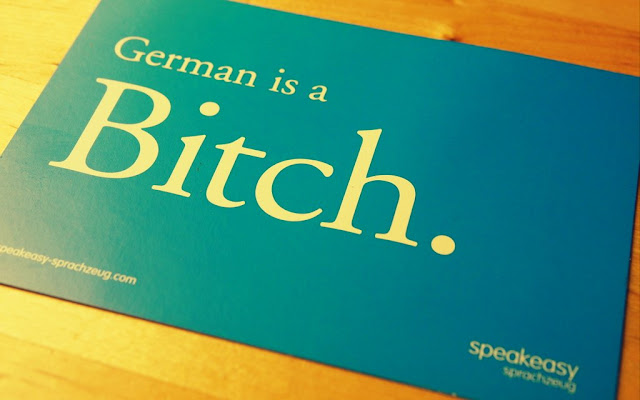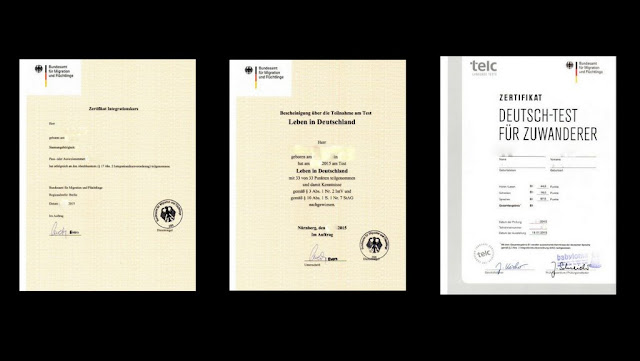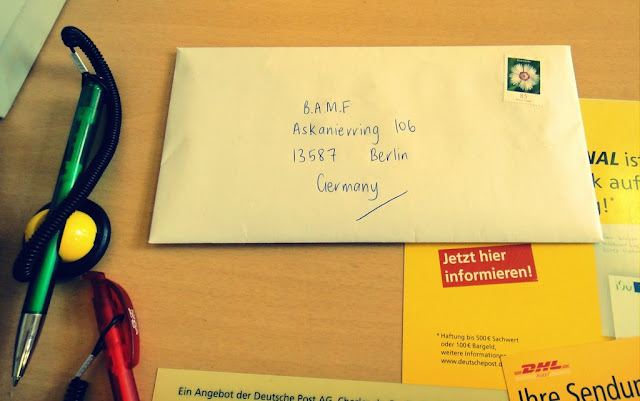So you decide you want to speak German. But you've heard it's a hard language to learn.
SO HOW DO YOU DO IT?
Are you the following:
- Enthusiastic? ☑
- Thinking of take a short German introduction course? ☑
- Considering an intensive 4 week German language course? ☑
- AND maybe you you might even consider immersing yourself in the culture and moving to Germany!? ☑, and you decide to go to BERLIN!!!???? ☑☑☑☑☑☑
Guess what? None of that works ✖ (by themselves), but don't despair, it all helps.
SO WHAT IS THE PROBLEM?
I am speaking from experience when I say the above isn't enough.
But I am enthusiastic?
Enthusiasm is a pre-requisite, but it's not enough on its own. If you aren't enthusiastic about learning German then forget it. The language is too hard and you won't make it. If you are motivated, read on!
But I took some school German and a short course as an adult?
This will all help, but the basic courses are, well, basic. At most you will probably learn how to count to 10 and introduce yourself. In your home country you might feel you have a good grounding, but get involved in a German conversation and you will be immediately out of your depth.
What about all these 4-week intensive courses I hear about?
These course are great....IF you do more than one of them, go to a decent school and are lucky enough to get a good teacher.
Language learning is typically divided into levels, known as the Common European Framework - with A1 being absolute beginner and then leading up to C1 which is considered University ready proficiency. You can move on to C2 if you are super keen.
Each level is divided into two, so you have:
- A1.1 and A1.2,
- A2.1 and A2.2,
- B1.1 and B1.2,
- B2.1 and B2.2,
- C1.1 and C1.2, and
- C2.1 and C2.2.
If you are a beginner, you will be enrolling in A1.1, and that is the first of the so called '4-week Intensive course'. Basically, if you do the 4-week course, you are only going to complete half of the level.
My experience with the '4-week Intensive courses' was not a good one but I have heard reports from other people who went to the same school say that their experience was very good. Sadly it's hit and miss.
Ok, so stuff the courses, what if I move to Germany and just 'pick it up' as I go?
After my bad experience at the German intensive course, I decided I would just pick up the language through full immersion. That's how you learn right? That's the romantic notion of moving to another country and becoming fluent in the language in three months, but sipping coffee on the promenade and reading the local newspapers...isn't it? Well not if you move to Berlin. (I can't vouch for the experience if you move somewhere else in Germany).
So why can't you pick up German in Berlin? It isn't impossible, but most people struggle. Berlin is THE place to be in Germany, if not Europe, and people come from all over the world to experience the magic of being in Berlin. This melting pot of culture and language has meant that English seemingly rivals German as the primary language. It's also likely that you will be mingling almost exclusively with expats, so you hardly will ever speak German. You will speak about how hard it is to learn German for sure, but actual German? Nope. I've met lots of people from all over the world (and only a handful are German) and in order to communicate the group needs a common language, which is always English. So thinking of practicing your German at the pub each evening? Forget it.
So what is the answer?
There is no magic bullet. No app, no audio course, no 4-week course to get you fluent in a short time. The key is to learn the language (at least some of the basic grammar, and a lot of vocabulary) and then USE IT.
But you said you don't get to use it in Berlin?
This is where stringing a heap of intensive courses together into a coherent learning plan will work. Basically, you need to finish the B1 level to get any real sort of grasp of German. Assuming you start at A1.1, you will progress through A1 (minimum 8 weeks), A2 (minimum 8 weeks) and B1 (minimum 8 weeks). This will be a minimum of 24 weeks of solid learning, where you will only speak German in class, so you will be learning and using the language A LOT!
Once you get to B1, it will have all been worth it. You won't have spent 1, 2 or 10 years in Berlin hoping to 'pick up the language' and find that you still can't communicate at all. Yes, at B1 you will still struggle, but you will be able to handle almost any situation, express yourself, work in German even, and stand up for yourself when you need to (I'm talking about at the Bürgeramt, or any Amt for that matter!)
I've heard about an 'Integration Course', what is that?
The German Integration Course is required for some foreign nationals in order to get a German Visa. In my case I didn't need it, but undertook the course anyway. An incentive for completing the course is that if you successfully make it through (there are some exams) the Government will refund you half of the tuition money you paid!
I went to a Language school in Kreuzberg called Babylonia, a politically active school founded in the 80s (and seemingly not updated since then), located in a former sewing machine factory.
If you look past the sparse furniture and lack of technology you will find passionate teachers and extremely helpful staff that want to help you, not only learn German but with your rights in Germany. They Government also provides an upfront discount in certain nationalities, so the course fees are substantially reduced in many cases...becoming much cheaper than the expensive private (and non-accredited) language schools.
Like any school, it's lecture based, following the BAMF curriculum and approved by the Job Center as a official language course provider. Most schools are 4-week intensive courses, and the skeptic in me thinks that this is the minimum time that they can get you in, take your money and then get you out. At Babylonia, each course step take 6 weeks, so each level takes 12 weeks.
To fully complete the Integration Course, there is also a 'Living in Germany' component at the end, which is an additional 3 or 4 weeks of learning Germany's history, culture and political system. I initially thought this would be a waste of time (because I already know it all...hahah) but soon found out that this was a fantastic opportunity to use everything we had learnt up that point in our in class conversations. We spoke a lot during the language courses and the 'Living in Germany' component and this was by far the biggest boost to my German proficiency. It gave me the confidence in a safe setting to speak out aloud, express myself and make mistakes.
At the end of the courses we had exams. People were nervous but in fact they were quite easy. At the B1 level the grammar is very tricky, but the exam focuses more on understanding and being understood, not so much the grammar. The language exam consisted of a listening test, a grammar test, a comprehension test and a writing test. Sounds hard but it wasn't.
The 'Living in Germany' test was super simple. There is an online practice site where you can run through 300 questions as much as you like. On the day of the exam, 33 questions from those 300 will be selected and you answer in multiple choice. Easy peasy.
Once you pass, the Government sends you some official certificates, which may be helpful to you in many circumstances, Visas, job applications, impressing your friends etc...
And once you have passed everything, you can apply to get half your money back! This takes ages (like 2 months) but hey, you get money back!!!
And that is the secret to 'How to speak German'!





